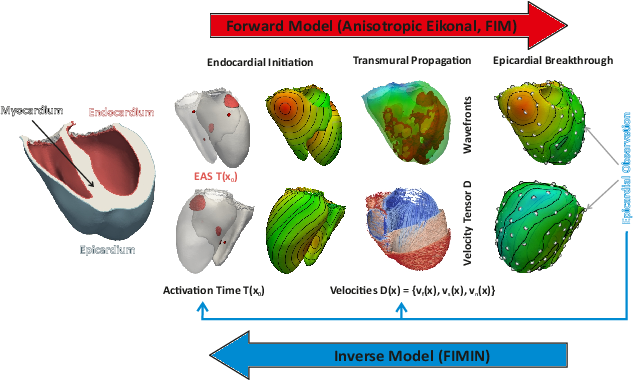ILearnHeart: Learning in Predictive Personalized Models of Total Heart Function
Cardiovascular diseases are with a prevalence of 45% a major cause of death in the industrialized world. Despite steady therapeutic improvement there are various cardiovascular diseases of high epidemiological relevance such as heart failure or atrial fibrillation that cannot be cured, but are rather treated by mitigating symptoms. Recent advances in clinical imaging show promise as a basis for enhanced therapies, as they provide a wealth of data on the electro-mechanical function of the heart. However, to comprehensively characterize cardiovascular function in a given patient and to gain better insight into the underlying disease mechanisms the ability to integrate these clinical data sources into a mechanistic framework to study cause-effect relationships quantitatively is of pivotal importance. Patient-specific in silico models that are able to faithfully simulate a patient’s heartbeat, show high promise as a technology for addressing this challenge as a complementary clinical modality in future precision medicine. Such models facilitate the testing of different therapeutic options in silico first without any risk for the patient, to determine the optimal therapeutic strategy and potentially also predict outcomes. This requires that computer models are custom-tailored for each individual patient. The sought after procedures for “personalizing”, that is the transition from a generic model to patient-specific one, requires sophisticated mathematical techniques which will be developed within the scope of the flagship project “ILearnHeart” in cooperation between the Graz universities Uni Graz, TU Graz and Med Uni Graz by bundling the expertise of the research labs of Prof. Pock and Prof. Bredies (image processing, optimization and machine learning), Prof. Haase (scientific computing) and Prof. Plank (cardiac modeling).
Project investigator
Assoz. Prof. Priv.-Doz. Dr.techn. Gernot Plank
Institute of Biophysics
Medical University of Graz
Project members
Univ.-Prof. Dr. techn. Gundolf Haase
Institute of Mathematics and Scientific Computing
University of Graz
Univ.-Prof. Dr. Kristian Bredies
Institute of Mathematics and Scientific Computing
University of Graz
Univ.-Prof. Dr. techn.Thomas Pock
Institute of Computer Graphics and Vision
Graz University of Technology
Results
One important part of inferring cardiac activation throughout the torso, is the propagation of electrical activation from endocardium to epicardium in the heart, as it is the most complex subdomain. A presented promising approach suggests that even coarse epicardial maps can already greatly aid our search of electrical parameters to reconstruct a given epicardial activation pattern. By adapting an underlying Eikonal model, we are able to infer activation timings and conduction velocities.

The result on an in-silico study of a complex activation pattern, mediated by the Purkinje-system, are presented in a short video, where we show both the initial, as well as the optimized activation.


